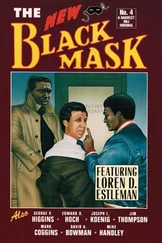Mary Wilson turned out to be a lovely petite woman in an immaculate soft brown pantsuit. Right from the jump she held the room in the palm of her hand. She didn’t really talk about work. She talked about life, and a couple times she burst into snippets of song. She mostly told stories of trials and tribulations and battling adversity and Diana Ross. But what was striking about Ms. Wilson, and was also true of the other outsiders who volunteered their time that day, was that she spoke to us prisoners with great respect, as if our lives ahead had hope and meaning and possibility. After all these months at Danbury, this was a shocking novelty.
MARTHA STEWART was still on everyone’s mind. Hysteria had been building on the outside and the inside as to where she would serve her short sentence, and what would happen to her. She had asked her judge to be sent to Danbury, so that her ninety-year-old mother in Connecticut could easily visit her. Her judge had no say over it at all, however. The Danbury (or Washington) powers-that-be in the Bureau of Prisons didn’t want her here, perhaps because they didn’t want close media scrutiny on the facility. The Camp had been “closed” to new inmates since her conviction, allegedly “full,” although we had more empty beds as every week passed.
A lot of nasty things had been written in the press about us. I wasn’t in the least bit surprised, but the women around me were upset, especially the middle-class ones. An article came out in People calling us “the scum of the earth” and speculating about the beat-downs and abuse Martha might suffer.
Annette turned to me after mail call, anguished by her copy. “I have been subscribing to People magazine for over thirty-five years. And now I’m the scum of the earth? Are you the scum of the earth, Piper?”
I said I didn’t think so. But the angst over People was nothing compared to the shock waves that rocked the Camp on September 20. I came up from the track in the early evening to find a cluster of A Dorm residents around Pop, cursing and shaking their heads over a newspaper. “What’s up?” I asked.
“You’re not going to believe this, Piper,” said Pop. “You remember that crazy French bitch?”
On September 19 the Sunday Hartford Courant had published a front-page story-we always got newspapers a day behind, so the institution could “control the flow of information.” Staff writer Lynne Tuohy had gotten an exclusive with a recently released Camper, “Barbara,” whom Martha had contacted for the inside scoop on life in the Danbury Camp. And “Barbara” had some interesting things to say.
“Once the shock of being in jail was over, it became a holiday,” Barbara said in an interview after her talk with Stewart. “I didn’t have to cook. I didn’t have to clean. I didn’t have to shop. I didn’t have to drive. I didn’t have to buy gas. They have an ice machine, ironing boards. It was like a big hotel.”
It was Levy, all right. After being whisked away to testify against her chiseler ex-boyfriend, she had reappeared in the Camp for one short week in June, and then she was released, her six-month sentence over. Apparently her stay had been far more enjoyable than she had let on when we had the pleasure of her company. She was singing the prison’s praises in the paper, going on about how much she had enjoyed the “wide range of classes” on offer plus:
“two libraries with a wide array of books and magazines, including Town and Country and People.” The food, Barbara said, was nothing short of “amazing.”
“This is a place that is so magnificent,” she said.
I pictured Levy, swollen with hives, looking like the Elephant Man, crying every single day over her six-month sentence and sneering at anyone she thought was not “classy.”
“I had my hair done every week,” Barbara said. “At home I don’t take care of me. I take care of my kids. I take care of my house. I had time there to take care of me. When I came home, I raised my standard of living a little bit.”
She hastened to add that the massages “are on the up-and-up,” and laughs when friends ask whether she was “attacked”-sexually assaulted-during her stay. “I’d say, ‘Are you kidding? Most people there were so classy.’”
The reporter got many minor facts wrong, such as that there were four nuns resident, and that we could buy CD players at the commissary. Women were outraged by the false claim that we could buy Häagen-Dazs ice cream. The Camp freaked out, issuing loud threats against the now-free Levy. Boo Clemmons was beside herself.
“Häagen-motherfuckin-Dazs! Hotel! That lying little bitch better hope she don’t violate, because if I get hold of her, she’s going to think she checked into Motel Hell!”
“I think Martha will be assigned to the kitchen and she will cook and she will be happy,” Barbara ventured.
I imagined Martha Stewart trying to take over Pop’s kitchen. That would be better than Godzilla vs. Mothra.
Pop was really upset, but not about the prospect of Martha in the mess hall. “Piper, I just don’t understand it. Why would she lie? You have the opportunity to get the truth out there about this place, and instead she makes up these lies? We have nothing here, and she makes it sound like a picnic, with her fucking six-month sentence. Try living here ten years!”
I thought I knew why Levy had lied. She didn’t want to admit to herself, let alone to the outside world, that she had been placed in a ghetto, just as ghetto as they had once had in Poland. Prison is quite literally a ghetto in the most classic sense of the world, a place where the U.S. government now puts not only the dangerous but also the inconvenient-people who are mentally ill, people who are addicts, people who are poor and uneducated and unskilled. Meanwhile the ghetto in the outside world is a prison as well, and a much more difficult one to escape from than this correctional compound. In fact, there is basically a revolving door between our urban and rural ghettos and the formal ghetto of our prison system.
It was too painful, I thought, for Levy and others (especially the middle-class prisoners) to admit that they had been classed as undesirables, compelled against their will into containment, and forced into scarcity without even the dignity of chosen austerity. So instead she said it was Club Fed.
MY NEIGHBOR Vanessa had given me an in-depth account of how, as young Richard, she had been banned from her high school prom for planning to wear a dress (she whipped up some sequined palazzo pants, found a sympathetic PTA mom to approve them, and attended in triumph). But I never knew what had landed her in federal prison, or why she’d first been designated to a high-security facility. I was pretty sure she wasn’t in prison for a drug crime, and I had a suspicion or intimation that she’d given the feds a bit of a chase before being taken into custody, which is probably why she’d ended up down the hill. She reminded me of the gay males and freshly females I had known in San Francisco and New York -smart, snappy, witty, curious about the world.
I was more curious about Vanessa’s history than about most of my fellow inmates, particularly after she made an unusual appearance in the visiting room one weekend. There she was, hair and makeup perfect, uniform pressed, towering over her visitor, a tiny, beautifully dressed white woman with snow-white hair. They stood together at the vending machines, their backs to me, the old lady in soft periwinkle blue, Vanessa displaying broad shoulders and narrow hips that any man would have envied.
“Did you have a nice visit?” I asked afterward, not hiding my curiosity.
“Oh yes! That was my grandmother!” she replied, lighting up. I was further intrigued, but not enlightened.
Читать дальше












